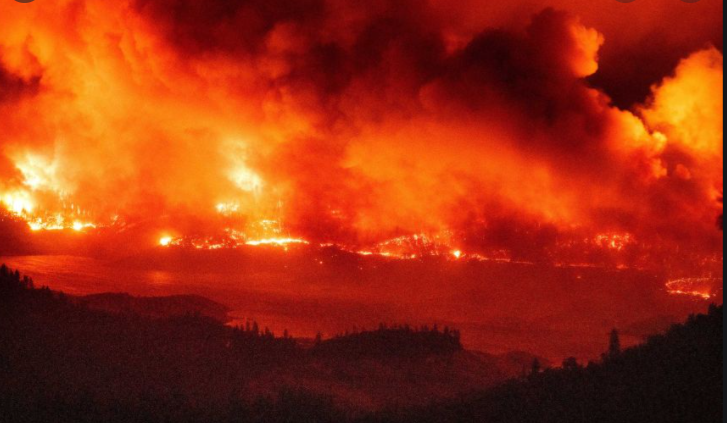California wildfires impacting other continents
The California wildfires have burned over four million acres since the beginning of 2020. As a result, 31 people have been confirmed dead, with more than 200 people still missing. The fires continue to overtake the area while the smoke persistently moves along the coast.
October 26, 2020
The wildfires consuming the west coast continue to spread farther west over the Pacific Ocean as firefighters work tirelessly toward containment. Since the beginning of the year, 8,400 wildfires have burned over four million acres in California. Despite media attention continuing to stray from these problems, the smoke from these fires greatly affects other continents, creating an unhealthy air quality and impacting the lives of many.
The Center for Disease Control and Prevention (CDC) explains that these fires may even become more harmful during the pandemic. Wildfire smoke can irritate the lungs, cause inflammation, affect the immune system, and make individuals more prone to lung infections, including SARS-CoV-2, the virus that causes COVID-19.
Smoke traveling on air currents high in the atmosphere appears unlikely to alter air quality on the ground in faraway places. However, this does not mean high-altitude smoke has no impact.
“If these smoke layers stayed up there for a month, you would see changes in temperatures, weather patterns, just because you’re putting something up there that doesn’t belong there. You’re changing the dynamics of the atmosphere,” Santiago Gasso, an atmospheric scientist at the University of Maryland said.
High-altitude smoke also impacts heat. —– dark, carbon particles can absorb solar radiation, effectively warming a thin layer in the atmosphere. While fires contribute to our ecosystem in certain circumstances, warming temperatures and drying soils due to human-caused climate change have contributed to increased wildfire activity, which negatively affects the planet. Factors not included in climate change still contribute to wildfire risk, as well.
As well as other continents, these fires have significantly impacted states from New York to Washington D.C., on the opposite coast of California. With particles of soot, smoke and ash in the air, it has become extremely harmful to human health, especially for children, seniors, pregnant women and people with preexisting heart and/or lung conditions.
“I traveled over the break to Oregon to spend time with family and it was hard not to notice how the air quality has been affected. Wildfires are also appearing there, too, as well as Washington, and they’ve been affecting other states in the west as well. I’m glad there are so many people working hard to help out, though,” sophomore Briana Williams said.
As the California wildfires, along with fires taking place in surrounding states persist, they continue to negatively impact the world with smoke consistently traveling across our Earth, harming individuals and the planet itself. Firefighters continue to work hard to put out these fires and create a safer, healthier environment for us to live in.



